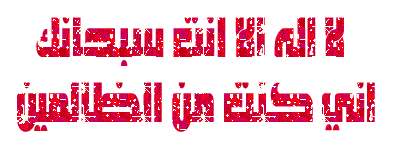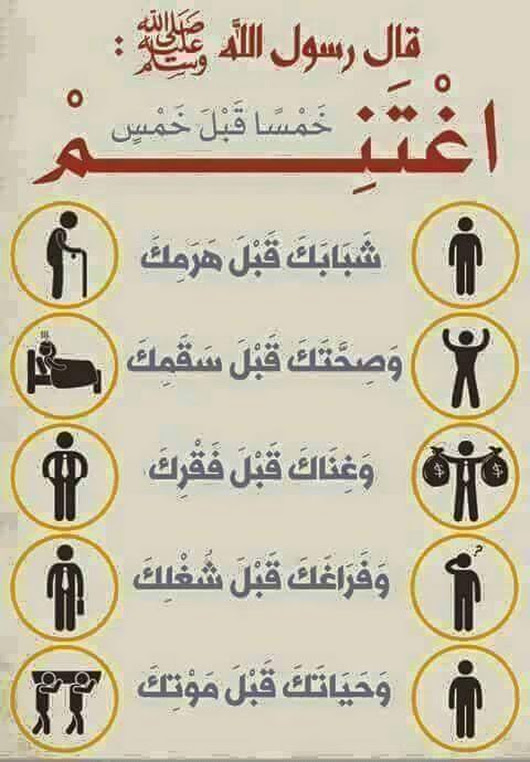Five Premises, Five Means and Five Results of the Islamic Propagation
Shaykh `Aa'id Abdullah al-Qarnee
(REFRENCE)
Thirty Lessons For Those Who Fast
The propagation of Islam was the mission of all the prophets and messengers of Allah. There was never a prophet who was not a preacher and teacher. All of them preached the same message: ‘Worship Allah, you have no other god but Him.’ They all called to their people saying: ‘I do not seek any reward from you for this work.’
ٱدۡعُ إِلَىٰ سَبِیلِ رَبِّكَ بِٱلۡحِكۡمَةِ وَٱلۡمَوۡعِظَةِ ٱلۡحَسَنَةِۖ وَجَـٰدِلۡهُم بِٱلَّتِی هِیَ أَحۡسَنُۚ إِنَّ رَبَّكَ هُوَ أَعۡلَمُ بِمَن ضَلَّ عَن سَبِیلِهِۦ وَهُوَ أَعۡلَمُ بِٱلۡمُهۡتَدِینَ
[Surah An-Nahl 125]
Allah Almighty says: ‘Call thou [all mankind] unto thy Sustainer’s path with wisdom and goodly exhortation, and argue with them in the most kindly manner.’ (16:125)
He ordered His Messenger: ‘Say :
قُلۡ هَـٰذِهِۦ سَبِیلِیۤ أَدۡعُوۤا۟ إِلَى ٱللَّهِۚ عَلَىٰ بَصِیرَةٍ أَنَا۠ وَمَنِ ٱتَّبَعَنِیۖ وَسُبۡحَـٰنَ ٱللَّهِ وَمَاۤ أَنَا۠ مِنَ ٱلۡمُشۡرِكِینَ
[Surah Yusuf 108]
Say, "This is my way; I invite to Allah with insight, I and those who follow me. And exalted is Allah ; and I am not of those who associate others with Him."
(12:108)
Having ordered his servants to employ useful knowledge and good deeds, Allah confirms:
وَمَنۡ أَحۡسَنُ قَوۡلࣰا مِّمَّن دَعَاۤ إِلَى ٱللَّهِ وَعَمِلَ صَـٰلِحࣰا وَقَالَ إِنَّنِی مِنَ ٱلۡمُسۡلِمِینَ
[Surah Fussilat 33]
‘And who could be better of speech than he who calls [his fellow-men] unto God, and does what is just and right, and says, "Verily, I am of those who have surrendered themselves to God?"’ (41:33)
There are five premises to the Islamic call, it has five approaches, and its results are also five.
Thirty Lessons For Those Who Fast
FIVE PREMESIS
First :sincerity and truthfulness with Allah, and to seek His favour. Allah says:
وَمَاۤ أُمِرُوۤا۟ إِلَّا لِیَعۡبُدُوا۟ ٱللَّهَ مُخۡلِصِینَ لَهُ ٱلدِّینَ حُنَفَاۤءَ وَیُقِیمُوا۟ ٱلصَّلَوٰةَ وَیُؤۡتُوا۟ ٱلزَّكَوٰةَۚ وَذَ ٰلِكَ دِینُ ٱلۡقَیِّمَةِ
[Surah Al-Bayyinah 5]
‘And withal, they were not enjoined aught but that they should worship God, sincere in their faith to Him alone.’
(98:5)
The holy Prophet, sallallahu `alaihi wa sallam, foretold that the first with whom the fire of hell will be lit are three;
من حديث أبي هريرة الذي أخرجه الإمام مسلم في صحيحه عنه رضي الله تعالى قال قال رسول الله صلى الله عليه وآله وسلم قال
أول خلق الله تسعر بهم النار يوم القيامة ثلاثة :عالم ومجاهد وغنى قال عليه السلام : يؤتى بالعالم يوم القيامة فيقال له ماذا عملت فيما علمت ؟ فيقول : يا ربى نشرته فى سبيلك ، فيقال له : كذبت إنما علمت ليقول الناس فلان عالم وقد قيل خذوا به الى النار
among them a scholar who acquired knowledge so that people would say he is learned. And it was indeed said of him.
Second :to practice what one preaches. Actually it is a scandal and disgrace that a person’s actions contradict his words. Allah derides such people in His Quran:
۞ أَتَأۡمُرُونَ ٱلنَّاسَ بِٱلۡبِرِّ وَتَنسَوۡنَ أَنفُسَكُمۡ وَأَنتُمۡ تَتۡلُونَ ٱلۡكِتَـٰبَۚ أَفَلَا تَعۡقِلُونَ
[Surah Al-Baqarah 44]
‘Do you bid other people to be pious, the while you forget your own selves – and yet you recite the divine writ? Will you not, then, use your reason?’
(2:44)
Third : gentleness in presenting the message. Allah advised Moses and Aaron to adopt this measure with Pharaoh, the greatest tyrant of his time:
(فَقُولَا لَهُۥ قَوۡلࣰا لَّیِّنࣰا لَّعَلَّهُۥ یَتَذَكَّرُ أَوۡ یَخۡشَىٰ)
[Surah Ta-Ha 44]
‘But speak unto him in a mild manner, so that he might bethink himself or [at least] be filled with apprehension.’ (20:44)
And to Muhammad, He also cautioned:
فَبِمَا رَحۡمَةࣲ مِّنَ ٱللَّهِ لِنتَ لَهُمۡۖ وَلَوۡ كُنتَ فَظًّا غَلِیظَ ٱلۡقَلۡبِ لَٱنفَضُّوا۟ مِنۡ حَوۡلِكَۖ فَٱعۡفُ عَنۡهُمۡ وَٱسۡتَغۡفِرۡ لَهُمۡ وَشَاوِرۡهُمۡ فِی ٱلۡأَمۡرِۖ فَإِذَا عَزَمۡتَ فَتَوَكَّلۡ عَلَى ٱللَّهِۚ إِنَّ ٱللَّهَ یُحِبُّ ٱلۡمُتَوَكِّلِینَ
[Surah Aal-E-Imran 159]
‘And it was by God’s grace that thou [O Prophet] didst deal gently with thy followers; for if thou hadst been harsh and hard of heart, they would indeed have broken away from thee’ (3:159).
Hence it was on this basis the Prophet, sallallahu `alaihi wa sallam, declared: ‘Make matters easy and do not make them difficult. Give glad tidings and do not drive people away.’
Fourth : adopt a gradual approach to propagation. Do as Prophet Muhammad, sallallahu `alaihi wa sallam, did in his mission by beginning with the most important matters; then follow them up in order of priority. This was clearly demonstrated in the advice he gave to Mu`adh before he sent him to Yemen.
عن ابن عباس رضي الله عنهما: أن رسول الله ﷺ لما بعث معاذاً إلى اليمن قال: إنك تأتي قوماً من أهل الكتاب، فليكن أول ما تدعوهم إليه شهادة أن لا إله إلا الله. -وفي رواية: إلى أن يوحِّدوا الله. فإن هم أطاعوك لذلك فأعلمهم أن الله افترض عليهم خمس صلوات في كل يوم وليلة. فإن هم أطاعوك لذلك فأعلمهم أن الله افترض عليهم صدقة تؤخذ من أغنيائهم فتُرد على فقرائهم. فإن هم أطاعوك لذلك فإياك وكرائم أموالهم. واتق دعوة المظلوم فإنه ليس بينها وبين الله حجاب
متفق عليه
"You will come upon a People of the Book (Jews and Christians), the first thing you should invite them to is to bear witness that there is no God save Allah and that I am the Messenger of Allah. If they respond positively to this, then inform them that Allah had ordained for them five prayers each day and night.’
Fifth : address every people with what is suited for them and their needs. There is a special approach to the people of the cities and another approach to the villagers. Similarly, there is a special approach to the bedouin.
The intellectual has his position and the ignorant has his position. So too, there is a style for the argumentative and an entirely different one for the submissive.
یُؤۡتِی ٱلۡحِكۡمَةَ مَن یَشَاۤءُۚ وَمَن یُؤۡتَ ٱلۡحِكۡمَةَ فَقَدۡ أُوتِیَ خَیۡرࣰا كَثِیرࣰاۗ وَمَا یَذَّكَّرُ إِلَّاۤ أُو۟لُوا۟ ٱلۡأَلۡبَـٰبِ
[Surah Al-Baqarah 269]
‘And whoever is granted wisdom has indeed been granted wealth abundant.’
The five means of propagation
First : the individual method; that is, to invite the person individually if the matter pertains to him specifically.
Second : public or mass propagation such as in lectures or exhortations that benefit the generality of people.
Third :private lessons to students each in his specialty. This is the task of the scholars who specialize in their disciplines.
Forth :propagation through writing, correspondence and authorship with guidance and benefit for those who are called.
Fifth : propagation using modern means of communication to advance the cause of truth.
The five results
First: to attain the position of inheritors of the prophets, for they were the first callers and beacons of light in the field of propagation.
Second: to obtain prayers for your forgiveness from the creation for having taught the people goodness.
في حديث أبي الدرداء مرفوعًا: وإن العالم ليستغفر له من في السماوات ومن في الأرض والحيتان في جوف الماء
وصححه ابن حبان
Even the whale in the ocean will pray for the caller to truth.
Third: to gain great rewards equivalent to that of those invited. The Prophet, sallallahu `alaihi wa sallam, said:
من سن في الإسلام سنة حسنة كان له أجرها وأجر من عمل بها من بعده لا ينقص ذلك من أجورهم شيئا، ومن سن في الإسلام سنة سيئة كان عليه وزرها ووزر من عمل بها من بعده لا ينقص ذلك من أوزارهم شيئا خرجه مسلم في صححيه
ومثل هذا الحديث ما رواه أبو هريرة عن النبي ﷺ أنه قال: من دعا إلى هدى كان له من الأجر مثل أجور من تبعه لا ينقص ذلك من أجورهم شيئًا، ومن دعا إلى ضلالة كان عليه من الإثم مثل آثام من تبعه لا ينقص ذلك من آثامهم شيئًا
رواه ه مسلم في صحيحه
‘Whoever calls to a good tradition will have the reward as the one who followed it without reducing from their reward.’
Fourth: the development of the caller from being on who is called to one who calls. He influences others and is not influenced by others who call to evil.
Fifth: the caller will become a leader among his people ad they will follow him. Allah almighty describes the righteous and notes that they call upon Him saying:









